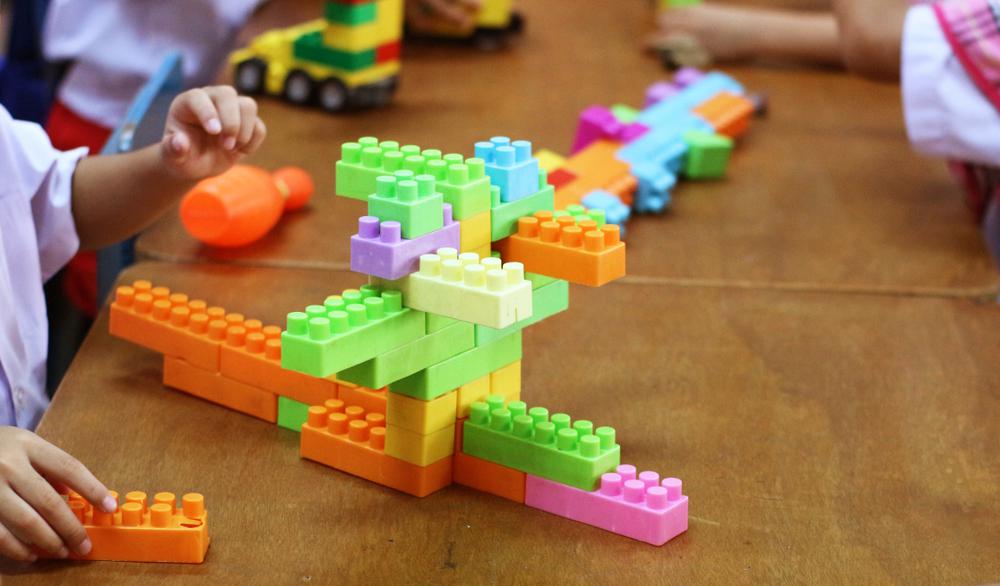Explore the Wonders of Space: Free Printable Worksheets & Answer Keys for Kids Ages 3-5 | Kids Academy
6 filtered results
-
From - To
Embark on an interstellar journey with our Space Worksheets, expertly designed for young astronauts aged 3-5. These vibrant and engaging worksheets will captivate your child's imagination, taking them on an adventure through the cosmos from the comfort of your home. Through a series of carefully crafted activities, little learners will explore planets, stars, and galaxies, developing essential skills in observation, counting, and early literacy along the way. Suitable for preschoolers, our Space for Ages 3-5 worksheets are the perfect launchpad for your child's educational journey, blending fun with learning to ignite a lifelong curiosity about the universe.


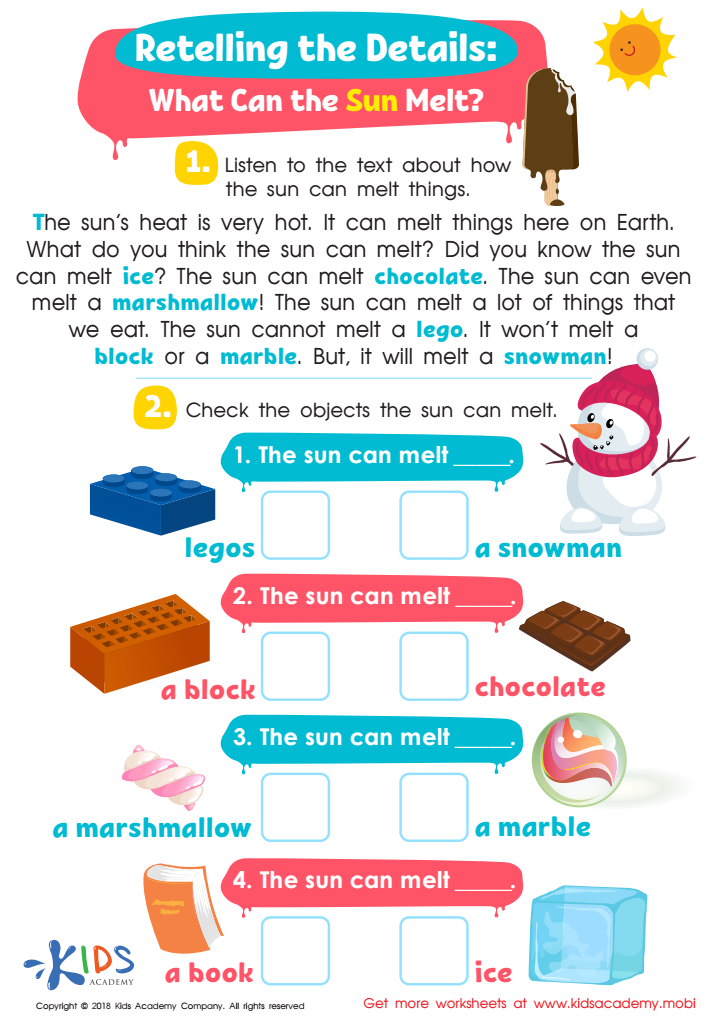

Retelling the Details: What Can the Sun Melt? Worksheet
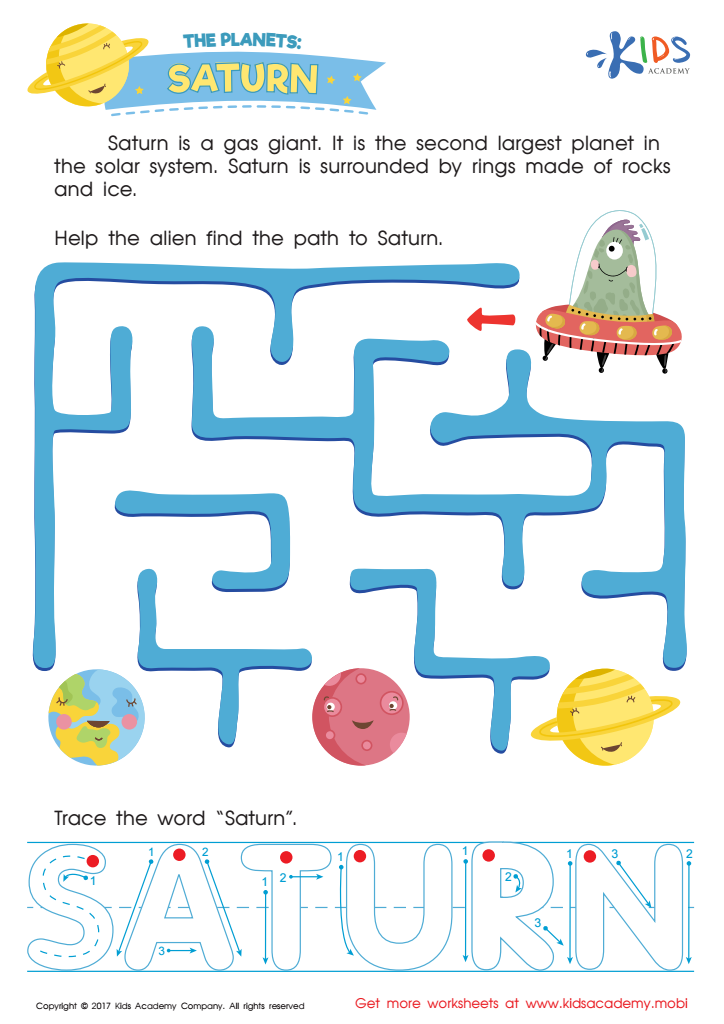

The Planets: Saturn Printable
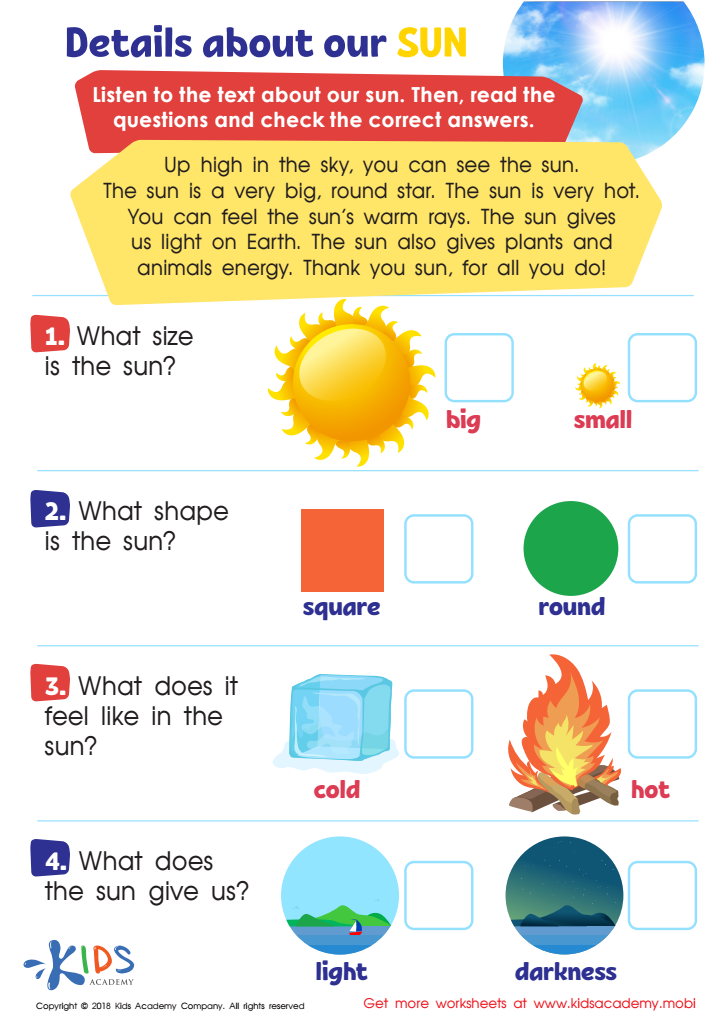

Details About Our Sun Worksheet
Worksheets on Space for Ages 3-5 are an essential tool for early childhood education, opening young minds to the wonders of the universe. At this developmental stage, children are naturally curious and eager to learn about the world around them, making it the perfect time to introduce concepts of space. These worksheets are designed specifically for this age group, ensuring the content is engaging, understandable, and just the right level of challenging.
Incorporating Space for Ages 3-5 worksheets into learning has several benefits. Firstly, they spark interest in science and astronomy from a young age, laying the groundwork for future learning in these fields. The colorful images of planets, stars, and astronauts capture children's imagination, making learning not just educational but also incredibly fun.
Furthermore, these worksheets help develop critical thinking and problem-solving skills. As children navigate through puzzles, matching games, and coloring activities, they learn to identify patterns, improve their memory, and enhance their fine motor skills. This hands-on approach to learning ensures that concepts stick with them longer.
By introducing young learners to the vastness of space through tailored worksheets, educators and parents can foster a lifelong love for learning and exploration. Space for Ages 3-5 worksheets are not just about learning facts; they're about inspiring the next generation of scientists, astronomers, and dreamers.
 Assign to My Students
Assign to My Students
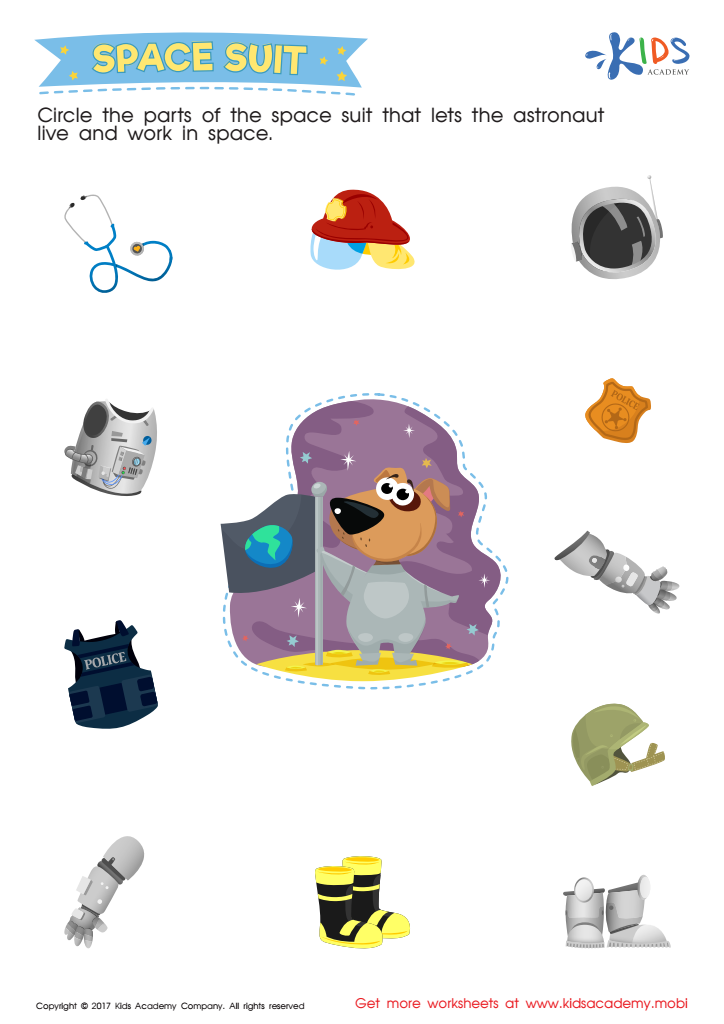
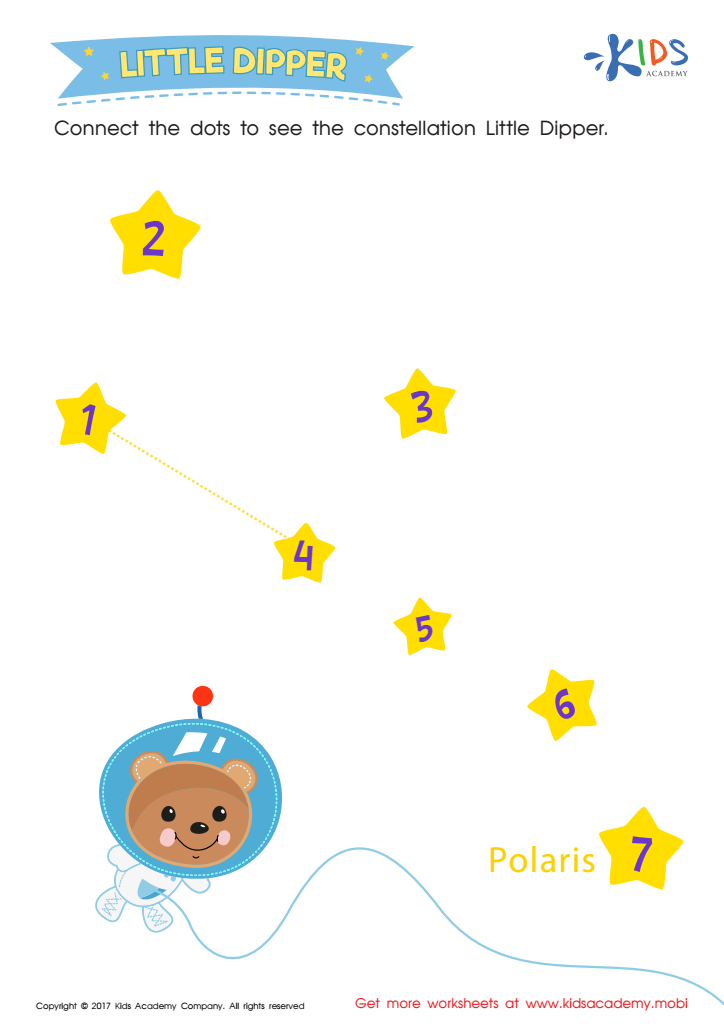


.jpg)



